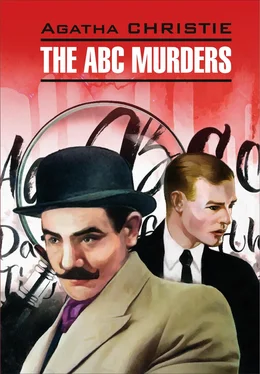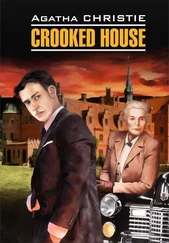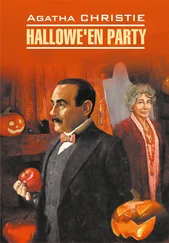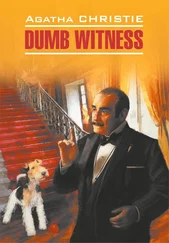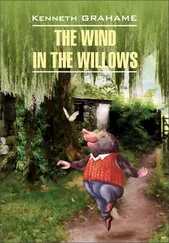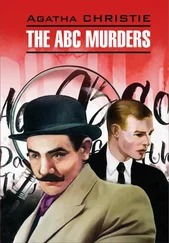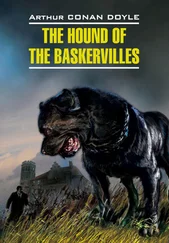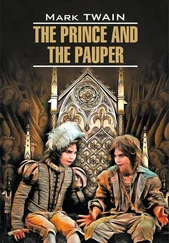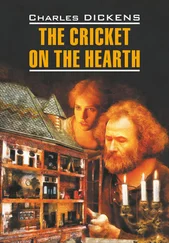Poirot was at the time living in Whitehaven Mansions [167] Whitehaven Mansions – многоквартирный жилой дом в центре Лондона
. The address ran: M. Hercule Poirot, Whitehorse Mansions, across the corner was scrawled: ‘Not known at Whitehorse Mansions, EC1, nor at Whitehorse Court—try Whitehaven Mansions.’
‘Mon Dieu!’ murmured Poirot. ‘Does even chance aid this madman? Vite [168] Vite (фр.) – Скорее
—vite— we must get on to Scotland Yard.’
A minute or two later we were speaking to Crome over the wire. For once the self-controlled inspector did not reply ‘Oh, yes?’ Instead a quickly stifled curse came to his lips. He heard what we had to say, then rang off in order to get a trunk connection [169] trunk connection – междугородное соединение
to Churston as rapidly as possible.
‘ C’est trop tard [170] C’est trop tard (фр.) – Слишком поздно
,’ murmured Poirot.
‘You can’t be sure of that,’ I argued, though without any great hope.
He glanced at the clock.
‘Twenty minutes past ten? An hour and forty minutes to go. Is it likely that ABC will have held his hand so long?’
I opened the railway guide I had previously taken from its shelf.
‘Churston, Devon,’ I read, ‘from Paddington [171] Paddington = London Paddington Station – крупнейший железнодорожный вокзал в северо-западной части Лондона
204 3/4 miles. Population 656. It sounds a fairly small place. Surely our man will be bound to be noticed there.’
‘Even so, another life will have been taken,’ murmured Poirot. ‘What are the trains? I imagine train will be quicker than car.’
‘There’s a midnight train—sleeping car to Newton Abbot—gets there 6.08 a.m., and then Churston at 7.15.’
‘That is from Paddington?’
‘Paddington, yes.’
‘We will take that, Hastings.’
‘You’ll hardly have time to get news before we start.’
‘If we receive bad news tonight or tomorrow morning does it matter which?’
‘There’s something in that.’
I put a few things together in a suitcase while Poirot once more rang up Scotland Yard.
A few minutes later he came into the bedroom and demanded:
‘Mais quest ce que vous faites là? [172] Mais quest ce que vous faites là? (фр.) – И чем вы здесь занимаетесь?
’
‘I was packing for you. I thought it would save time.’
‘ Vous éprouvez trop d’émotion [173] Vous éprouvez trop d’émotion (фр.) – Вы слишком подвержены эмоциям
, Hastings . It affects your hands and your wits. Is that a way to fold a coat? And regard what you have done to my pyjamas. If the hairwash breaks what will befall them?’
‘Good heavens, Poirot,’ I cried, ‘this is a matter of life and death. What does it matter what happens to our clothes?’
‘You have no sense of proportion, Hastings. We cannot catch a train earlier than the time that it leaves, and to ruin one’s clothes will not be the least helpful in preventing a murder.’
Taking his suitcase from me firmly, he took the packing into his own hands.
He explained that we were to take the letter and envelope to Paddington with us. Someone from Scotland Yard would meet us there.
When we arrived on the platform the first person we saw was Inspector Crome.
He answered Poirot’s look of inquiry.
‘No news as yet. All men available are on the lookout. All persons whose name begins with C are being warned by phone when possible. There’s just a chance. Where’s the letter?’
Poirot gave it to him.
He examined it, swearing softly under his breath.
‘Of all the damned luck. The stars in their courses fight for the fellow.’
‘You don’t think,’ I suggested, ‘that it was done on purpose?’
Crome shook his head.
‘No. He’s got his rules—crazy rules—and abides by them. Fair warning. He makes a point of that. That’s where his boastfulness comes in. I wonder now—I’d almost bet the chap drinks White Horse whisky.’
‘Ah, c’est ingénieux [174] c’est ingénieux (фр.) – это гениально
, çа!’ said Poirot, driven to admiration in spite of himself. ‘He prints the letter and the bottle is in front of him.’
‘That’s the way of it,’ said Crome. ‘We’ve all of us done much the same thing one time or another, unconsciously copied something that’s just under the eye. He started off White and went on horse instead of haven…’
The inspector, we found, was also travelling by the train.
‘Even if by some unbelievable luck nothing happened, Churston is the place to be. Our murderer is there, or has been there today. One of my men is on the phone here up to the last minute in case anything comes through.’
Just as the train was leaving the station we saw a man running down the platform. He reached the inspector’s window and called up something.
As the train drew out of the station Poirot and I hurried along the corridor and tapped on the door of the inspector’s sleeper.
‘You have news—yes?’ demanded Poirot.
Crome said quietly:
‘It’s about as bad as it can be. Sir Carmichael Clarke has been found with his head bashed in.’
Sir Carmichael Clarke, although his name was not very well known to the general public, was a man of some eminence. He had been in his time a very well-known throat specialist. Retiring from his profession very comfortably off, he had been able to indulge what had been one of the chief passions of his life—a collection of Chinese pottery and porcelain. A few years later, inheriting a considerable fortune from an elderly uncle, he had been able to indulge his passion to the full, and he was now the possessor of one of the best-known collections of Chinese art. He was married but had no children and lived in a house he had built for himself near the Devon coast, only coming to London on rare occasions such as when some important sale was on.
It did not require much reflection to realize that his death, following that of the young and pretty Betty Barnard, would provide the best newspaper sensation for years. The fact that it was August and that the papers were hard up for subject matter [175] were hard up for subject matter – нуждались в теме для обсуждения
would make matters worse.
‘ Eh bien [176] Eh bien (фр.) – Что ж
,’ said Poirot. ‘It is possible that publicity may do what private efforts have failed to do. The whole country now will be looking for А В C.’
‘Unfortunately,’ I said, ‘that’s what he wants.’
‘True. But it may, all the same, be his undoing. Gratified by success, he may become careless… That is what I hope—that he may be drunk with his own cleverness.’
‘How odd all this is, Poirot,’ I exclaimed, struck suddenly by an idea. ‘Do you know, this is the first crime of this kind that you and I have worked on together? All our murders have been—well, private murders, so to speak.’
‘You are quite right, my friend. Always, up to now, it has fallen to our lot [177] to fall to one’s lot – доводиться
to work from the inside . It has been the history of the victim that was important. The important points have been: “Who benefited by the death? What opportunities had those round him to commit the crime?” It has always been the “crime intime”. Here, for the first time in our association, it is cold-blooded, impersonal murder. Murder from the outside .’
Читать дальше
Конец ознакомительного отрывка
Купить книгу
